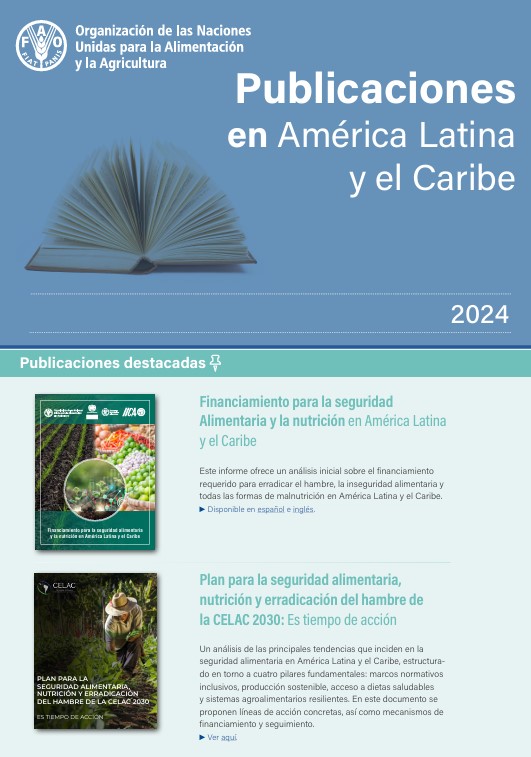Publications
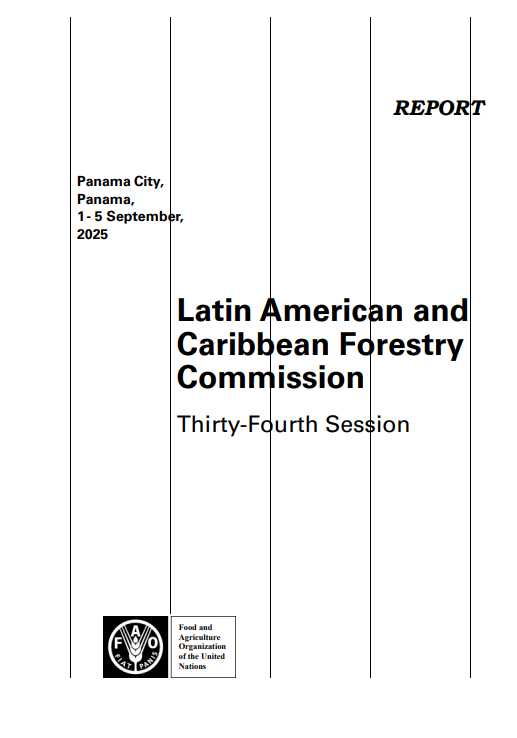
Report of the Thirty-Fourth session of the Latin American and Caribbean Forestry Commission - LACFC/2025/REP
13/11/2025
Based on the national and regional priorities of countries, FAO regional initiatives, and international agreements and dialogues on forestry, the mandate of the Latin American and Caribbean Forestry Commission (LACFC) is to advise FAO on the forestry program to be developed in the region.
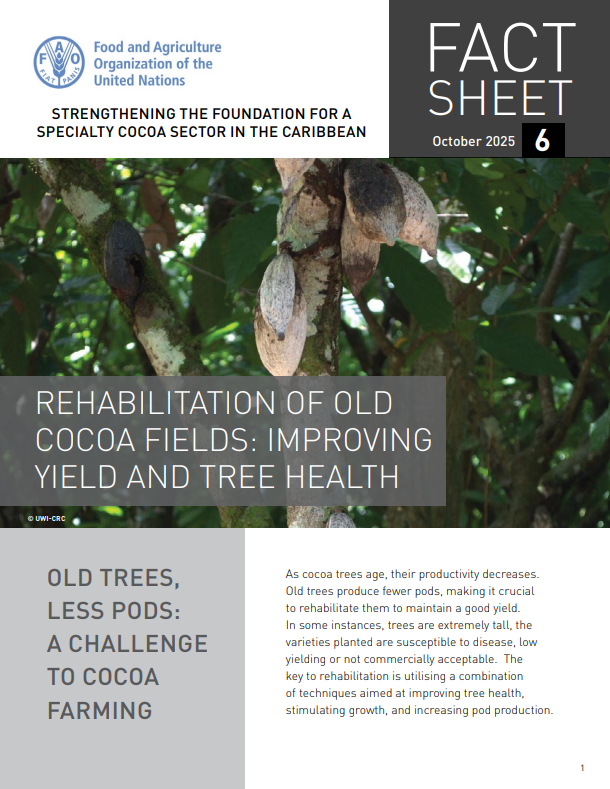
Strengthening the foundations for a specialty cocoa sector in the Caribbean
30/10/2025
As cocoa trees age, their productivity decreases. Old trees produce fewer pods, making it crucial to rehabilitate them to maintain a good yield. The key to rehabilitation is utilising a combination of techniques aimed at improving tree health, stimulating growth, and increasing pod production.
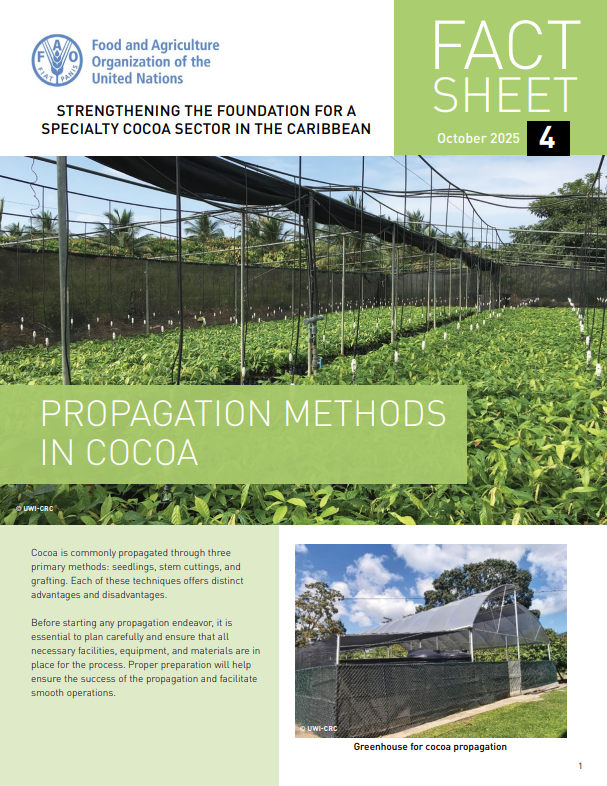
Strengthening the foundations for a specialty cocoa sector in the Caribbean
30/10/2025
Cocoa is commonly propagated through three primary methods: seedlings, stem cuttings, and grafting. Each of these techniques offers distinct advantages and disadvantages. This technical factsheet provides critical information on sustainable propagation methods in cocoa.
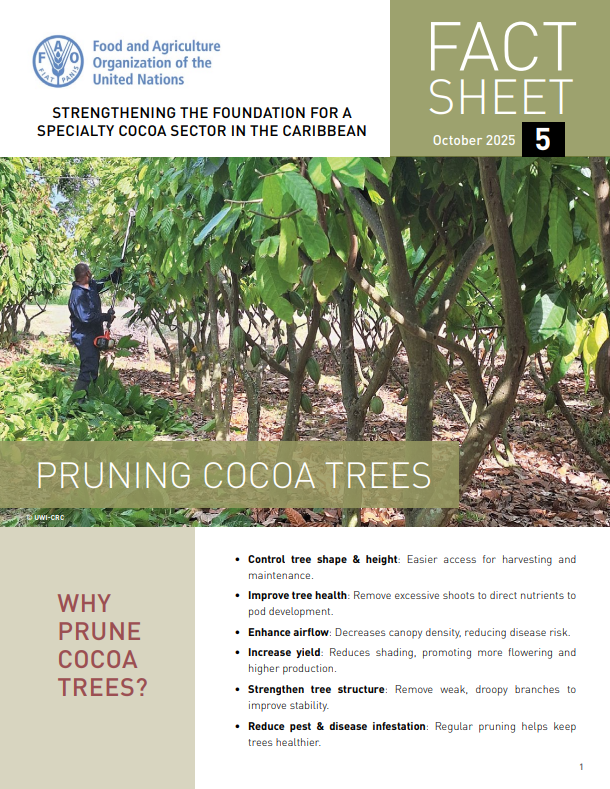
Strengthening the foundations for a specialty cocoa sector in the Caribbean
30/10/2025
Regular pruning of cocoa trees improves tree health, reduces disease incidence, maintains a manageable tree height and boosts cacao production. This technical factsheet provides good practices for the sustainable pruning of cocoa trees.
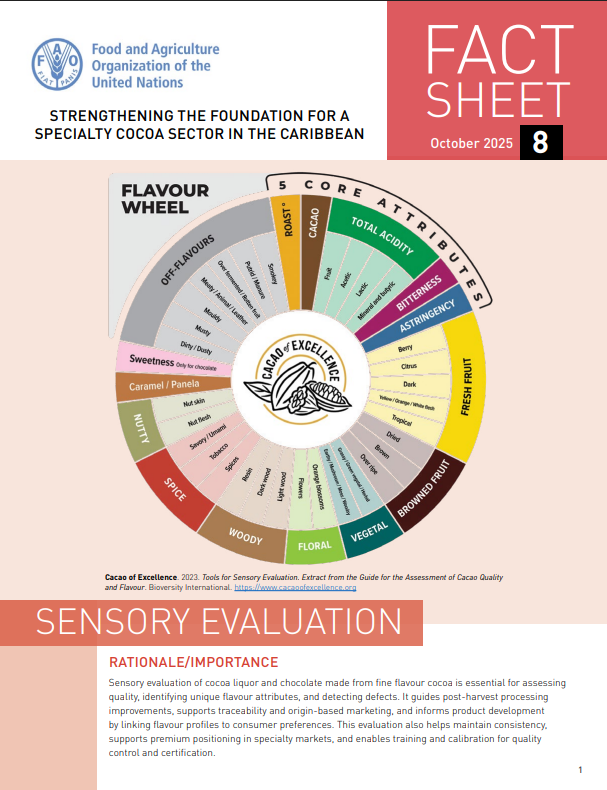
Strengthening the foundations for a specialty cocoa sector in the Caribbean
30/10/2025
Sensory evaluation of cocoa liquor and chocolate made from fine flavour cocoa is essential for assessing quality, identifying unique flavour attributes, and detecting defects.
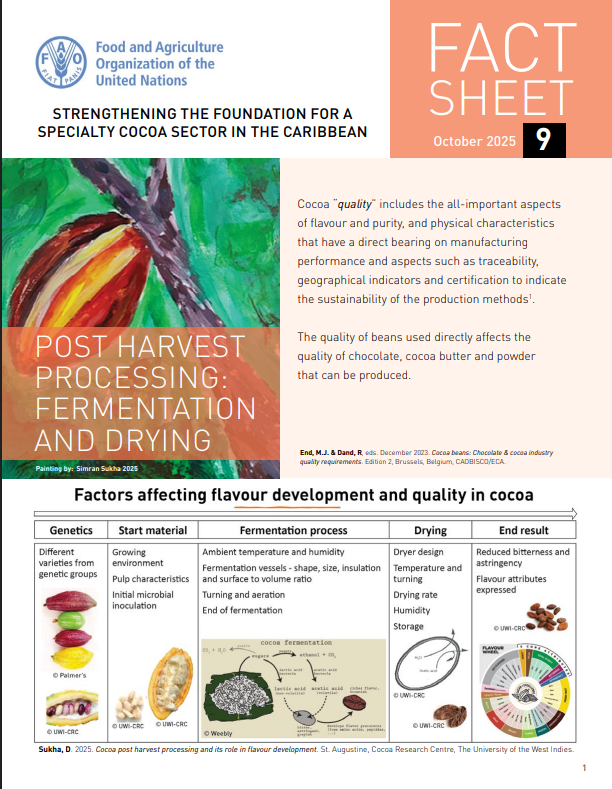
Strengthening the foundations for a specialty cocoa sector in the Caribbean
30/10/2025
Post-harvest processing of cocoa—fermentation, drying, and storage—is essential to develop flavour precursors, reduce bitterness and astringency, lower moisture content to prevent mould growth, and ensure bean quality for safe storage and market acceptance.
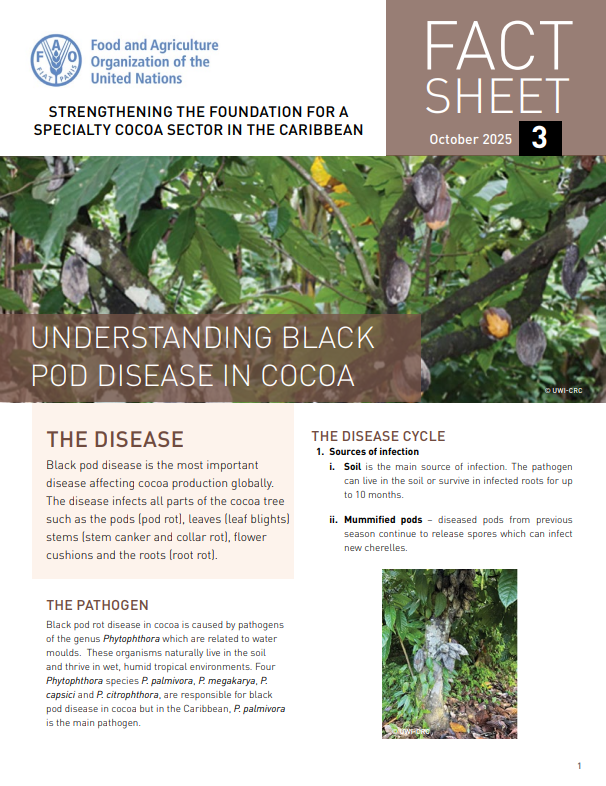
Strengthening the foundations for a specialty cocoa sector in the Caribbean
30/10/2025
Black pod disease is the most important disease affecting cocoa production globally. The disease infects all parts of the cocoa tree such as the pods (pod rot), leaves (leaf blights) stems (stem canker and collar rot), flower cushions and the roots (root rot).

